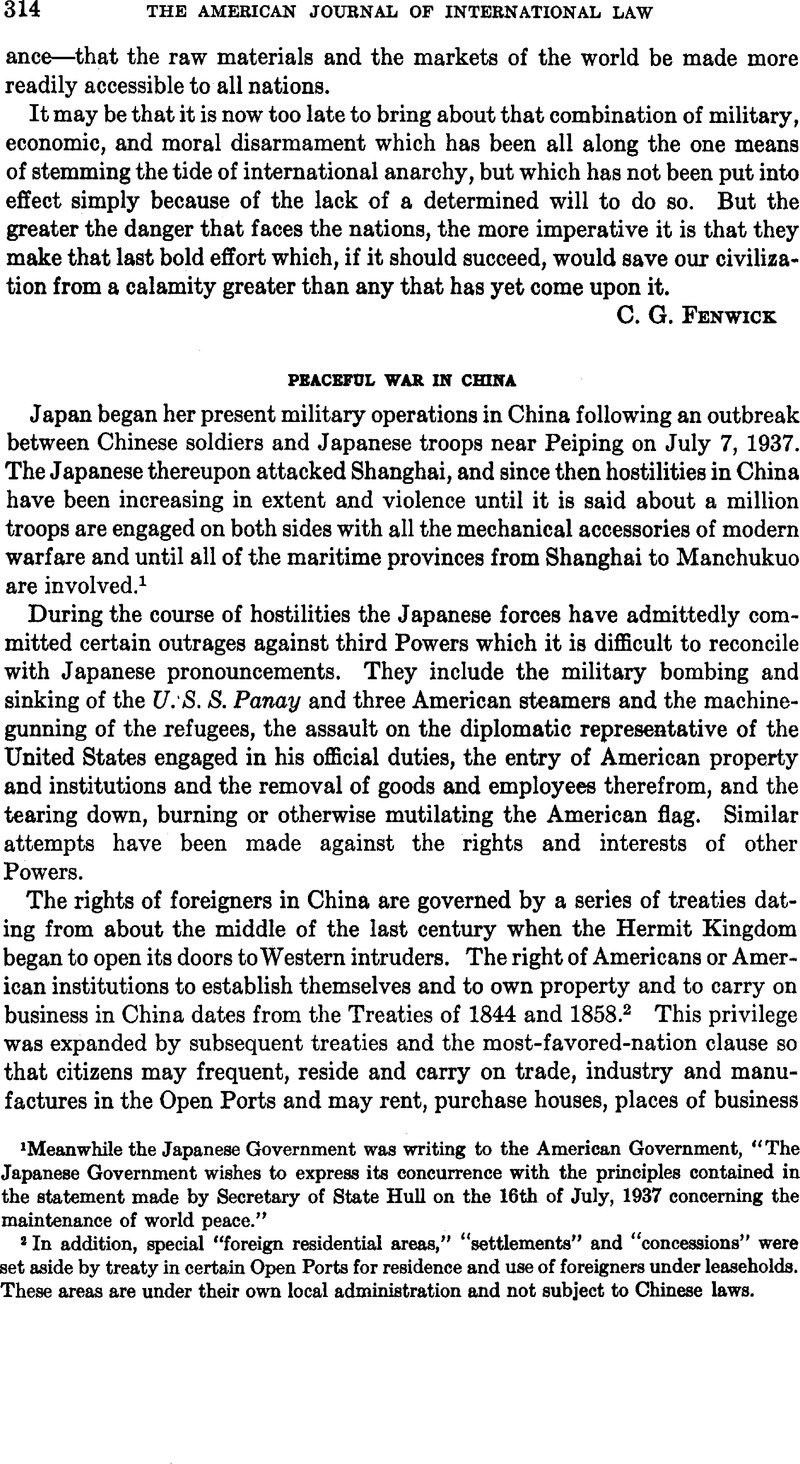No CrossRef data available.

1 Meanwhile the Japanese Government was writing to the American Government, “The Japanese Government wishes to express its concurrence with the principles contained in the statement made by Secretary of State Hull on the 16th of July, 1937 concerning the maintenance of world peace.”
2 In addition, special “foreign residential areas,” “settlements”and“concessions”were set aside by treaty in certain Open Ports for residence and use of foreigners under leaseholds. These areas are under their own local administration and not subject to Chinese laws.
3 Subsequently the United States by Act of Congress established the United States Court for China, similar to the British Supreme Court of China, without disturbing the original jurisdiction of the consular courts.
4 By mandate of May 4, 1931, China promulgated regulations for the abolition of extraterritorial jurisdiction, but they never became effective. (Millard, End of Exterritoriality in China (1931), p. 3.)
For an excellent discussion of treaty rights in China, see Willoughby, W. W., Foreign Interests in China (1920), and China at the Conference (1922).Google Scholar
5 On Sept. 4, 1937, the Imperial Message to the Diet stated that Japan had no other purpose than “securing swiftly the peace of East Asia.” On the next day the Prime Minister before the Diet referred to “our great mission of establishing peace in the Orient.”
6 Japan was also an original member of the League of Nations but gave notice of her withdrawal in 1932. While a member of the League, however, and contrary to its tenets,Japan took from China the province of Manchuria containing roughly 500,000 square miles of territory.
7 The report to the Assembly of the Far East Advisory Subcommittee, Oct. 5, 1937, showed that “the action taken by Japan is a breach of Japan’s treaty obligations and cannot be justified.” The conclusions of this report were adopted by the Assembly of the League and approved by the United States Government.
8 According to an Associated Press despatch from Tokio, March 22, 1938, Premier Konoye told the Diet, “I can tell you we will never give up an inch of the areas already occupied. We must do our utmost to develop industry and the economic condition of the occupied areas, paralleling this work with cultural efforts.”
9 Bas v. Tingy (1800), 4 Dallas 34, 40.
10 The Prize Cases (1862), 2 Black 635.
11 Cobbett, Leading Cases on International Law, Vol. II, p. 10.
12 Moore, Digest of International Law, Sees. 21–22, 1143–55; Spaight, War Rights on Land, p. 320 ff.
13 Moore, op.cit., II, pp. 204, 644.
14 Scott’s Hague Court Reports, p. 110.
15 Magoon’s Reports, pp. 328–331.